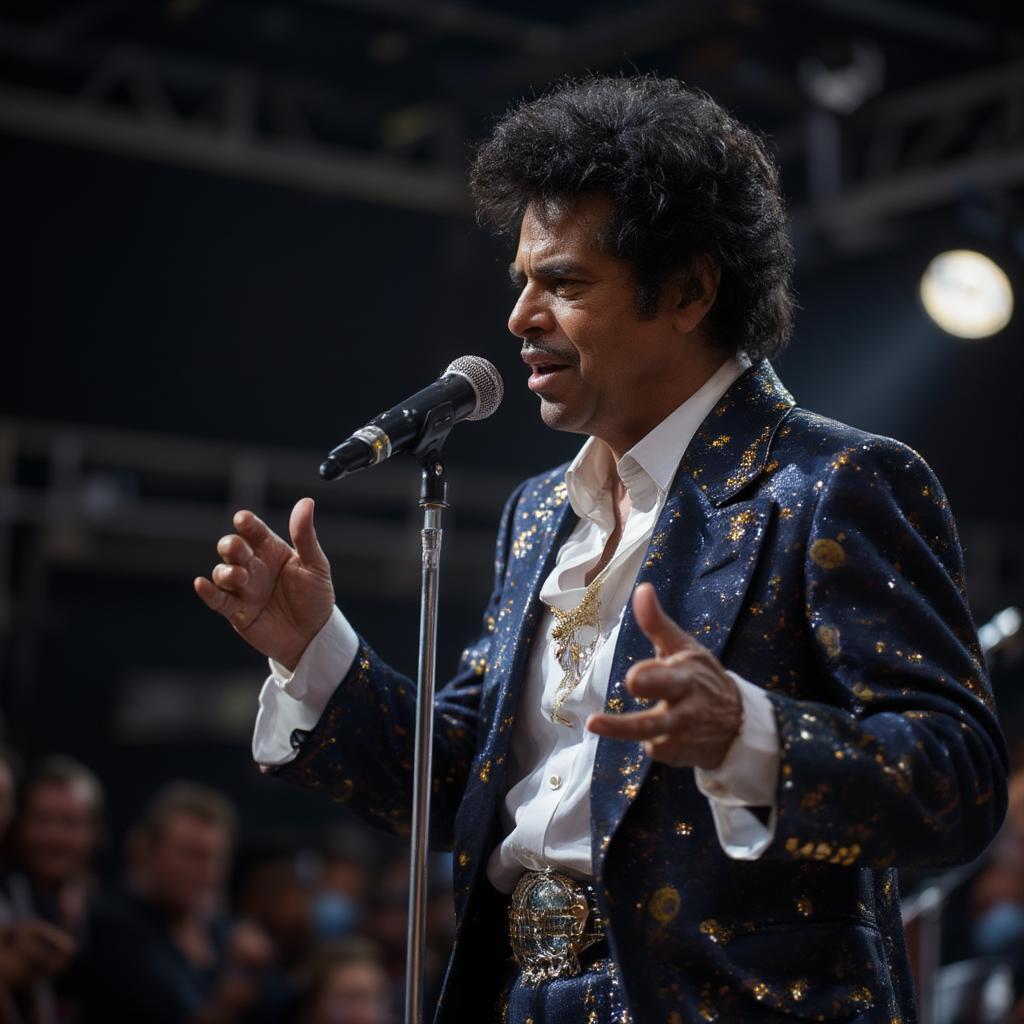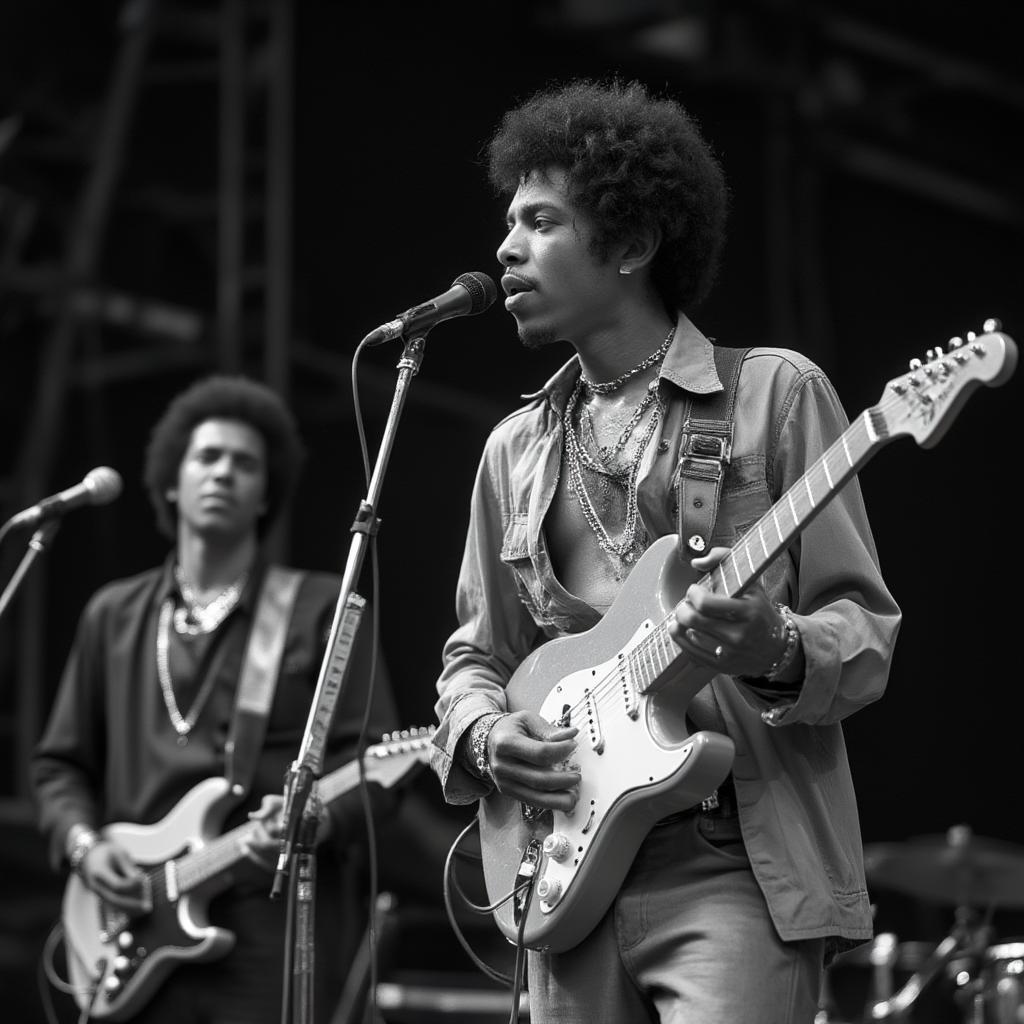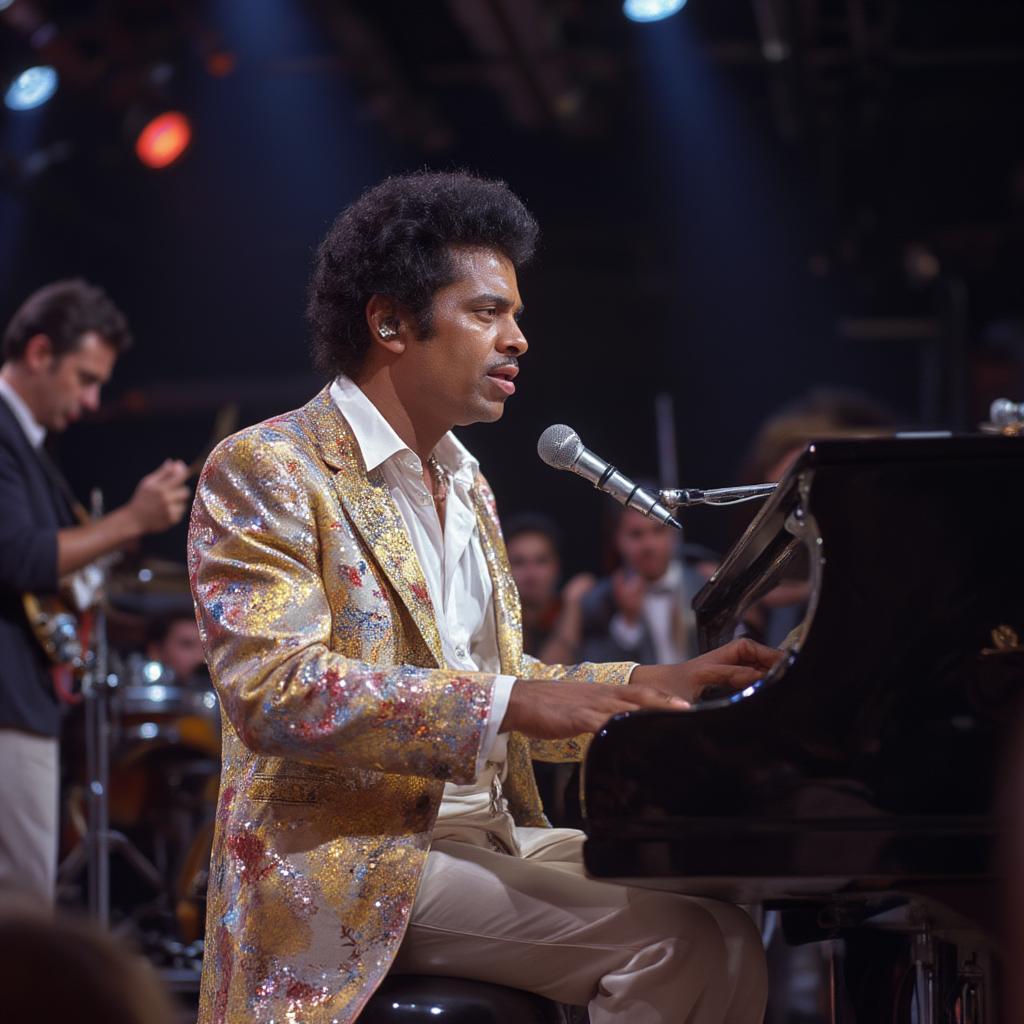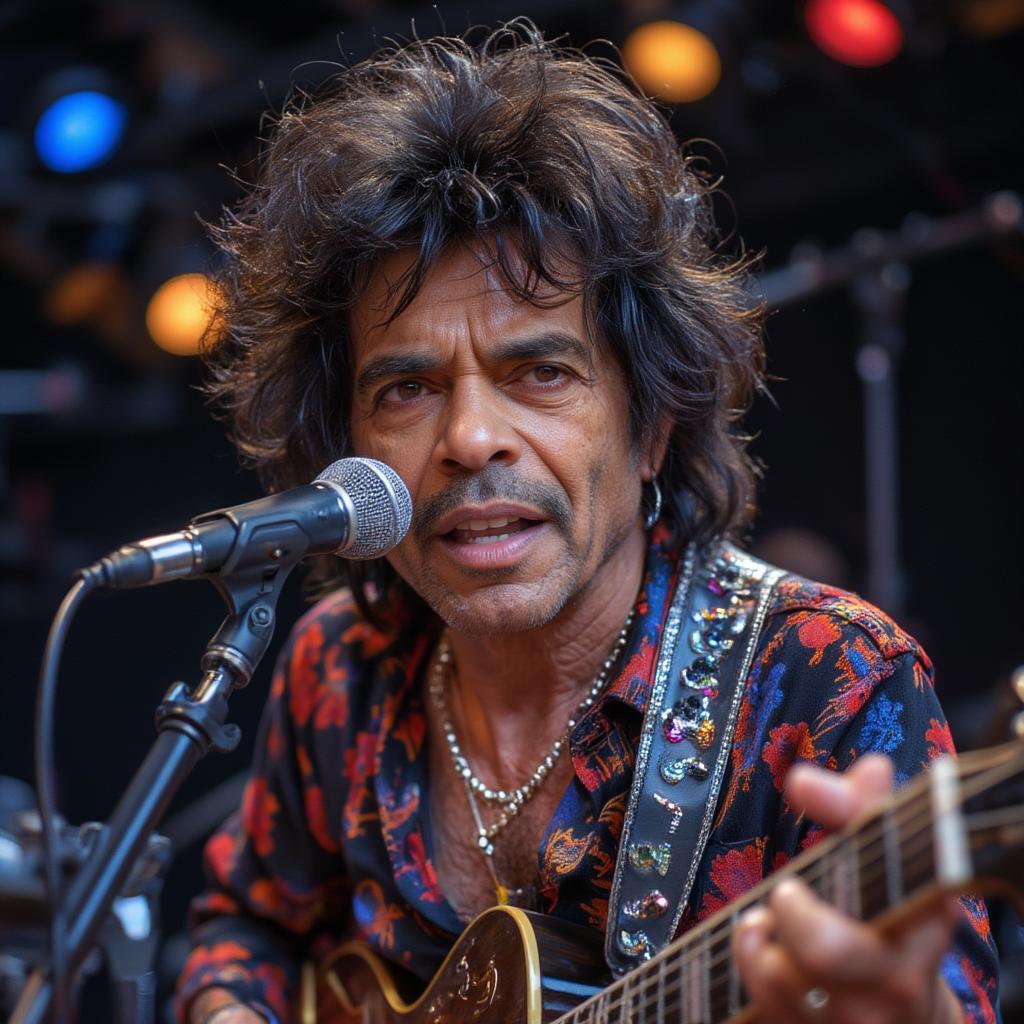The Explosive Little Richard: A Legacy of Wild Rock ‘n’ Roll

The Explosive Little Richard, a name synonymous with the birth of rock and roll, remains a towering figure in music history. His flamboyant style, energetic performances, and groundbreaking music shattered conventions and ignited a cultural revolution. This article delves into the life and career of this iconic artist, exploring the elements that made him a true original and examining his enduring influence on music today.
Tutti Frutti and the Rise of a Star
Little Richard’s meteoric rise to fame began in the mid-1950s with the release of “Tutti Frutti,” a song that became an instant anthem for a generation. Its infectious rhythm, suggestive lyrics (sanitized for mainstream audiences), and Richard’s ferocious delivery captured the rebellious spirit of the era. The song’s success catapulted Little Richard into the spotlight, establishing him as a major force in the burgeoning rock ‘n’ roll scene. He followed up with a string of hits, including “Long Tall Sally,” “Rip It Up,” “Lucille,” and “Good Golly Miss Molly,” each showcasing his signature blend of gospel fervor, boogie-woogie piano, and unrestrained showmanship. His dynamic performances, characterized by his frantic piano playing, flamboyant costumes, and soaring vocals, were unlike anything seen before, influencing countless artists who followed.
The Architect of Rock ‘n’ Roll’s Sound
Little Richard’s musical contributions extended beyond his individual hits. His pioneering use of heavy backbeats, distorted electric guitar, and powerful vocals helped define the sound of rock ‘n’ roll. He incorporated elements of gospel, blues, and rhythm and blues, forging a unique style that transcended genre boundaries. He wasn’t just a performer; he was an innovator, shaping the very DNA of rock music. His influence can be heard in the music of The Beatles, The Rolling Stones, Elvis Presley, and countless other artists who acknowledged Little Richard as a major inspiration.
Little Richard’s Impact Beyond Music
The Explosive Little Richard’s impact transcended the realm of music. His flamboyant persona challenged societal norms and helped pave the way for greater acceptance of individuality and self-expression. His unapologetic embrace of his own unique style inspired generations to break free from constraints and celebrate their true selves. He became a symbol of liberation, particularly for marginalized communities, demonstrating the power of music to challenge the status quo.
Breaking Barriers and Inspiring Generations
Little Richard’s success challenged racial barriers in a deeply segregated America. His music brought together black and white audiences, contributing to the breakdown of racial divides through the shared experience of rock ‘n’ roll. His influence extends to fashion and performance as well. His flamboyant style, marked by pompadours, makeup, and dazzling costumes, broke down traditional gender roles and set a precedent for theatrical stage presence in rock music.
Was Little Richard the King of Rock ‘n’ Roll?
The debate over the “King of Rock ‘n’ Roll” title often centers on Elvis Presley, but many argue that Little Richard’s musical innovations and undeniable influence warrant equal consideration. While Elvis popularized rock ‘n’ roll, some argue that Little Richard laid the foundational groundwork. His groundbreaking music and electrifying performances undeniably ignited the genre and inspired countless artists.
A Unique and Enduring Legacy
Regardless of royal titles, The Explosive Little Richard’s legacy as a pioneer of rock ‘n’ roll is undeniable. His music continues to resonate with audiences today, his influence evident in the work of contemporary artists across various genres. His life and career serve as a testament to the transformative power of music and the importance of staying true to oneself.
The Later Years and Lasting Influence of The Explosive Little Richard
While Little Richard’s initial burst of fame occurred in the 1950s, his influence persisted throughout his long career. He continued to perform and record, experiencing periods of religious devotion interspersed with returns to the secular music world. This constant interplay between his faith and his passion for rock ‘n’ roll adds another layer of complexity to his already fascinating persona.
A Legacy that Continues to Inspire
Dr. Jonathan Freemantle, musicologist and author of “The Rhythm and the Gospel: The Influence of Religion on Rock ‘n’ Roll,” notes, “Little Richard’s unwavering commitment to both his faith and his music represents a unique dichotomy that speaks to the complexities of the human spirit. He navigated these seemingly contradictory impulses with a grace and authenticity that further solidified his iconic status.” His unique blend of sacred and secular influences continues to inspire artists to this day.

Conclusion
The Explosive Little Richard’s impact on music and culture is immeasurable. He was more than just a singer and pianist; he was a revolutionary force who helped shape the sound and spirit of rock ‘n’ roll. His music, style, and unwavering individuality continue to inspire generations of artists and fans. Little Richard’s legacy as a true original ensures his place as one of the most important figures in the history of music. Let’s keep on shouting “Tutti Frutti” and celebrating the enduring legacy of the explosive Little Richard.
FAQ: The Explosive Little Richard
- What was Little Richard’s real name? Richard Wayne Penniman.
- What is Little Richard’s most famous song? “Tutti Frutti” is often cited as his most famous song.
- What instruments did Little Richard play? Primarily piano and vocals, but he also experimented with other instruments.
- How did Little Richard influence rock ‘n’ roll? His energetic style, flamboyant persona, and unique musical blend helped define the genre.
- When did Little Richard die? May 9, 2020.
- Where was Little Richard born? Macon, Georgia.
- What was Little Richard’s signature vocal style? A blend of gospel shouting, high-pitched screams, and powerful vocals.
- Why was Little Richard called “The Architect of Rock ‘n’ Roll?” His innovative use of instruments and vocals shaped the genre’s sound.
- How did Little Richard impact the Civil Rights Movement? His music brought black and white audiences together, contributing to the breaking down of racial barriers.




